#c: lipstick and nylons and invitations
Explore tagged Tumblr posts
Text
"Oh Susan!" said Jill, "she's interested in nothing now-a-days except nylons and lipstick and invitations. She always was a jolly sight too keen on being grown-up."
A jolly sight too keen on being grown-up. This is Lewis's own opinion of Susan, which he repeated when readers asked him what went wrong. As we've seen, he wrote her like that from the beginning; this was not an afterthought.
So what's so wrong, to Lewis, about wanting to be an adult? Well, I think it's not that Susan wants to be an adult, so much as that she wants to not be a child. What's the problem with this?
First of all, in Narnia, children are as good as adults. It's not just that the child protagonists are routinely trusted with the fate of nations; that's par for the course in children's adventure and fantasy fiction. It's that from time to time adult characters question this trust, and they are wrong every time.
Lewis respected children as human beings, to a degree that is rare anywhere but especially hard to find these days among his fellow conservatives.
Once in a hotel dining room I said, rather too loudly, "I loathe prunes." "So do I," came an unexpected six-year-old voice from another table. Sympathy was instantaneous. Neither of us thought it funny. We both knew that prunes are far too nasty to be funny. That is the proper meeting between man and child as independent personalities. The child as reader is neither to be patronized nor idolized; we talk to him as man to man. But the worst attitude of all would be the professional attitude which regards children in the lump as a sort of raw material which we have to handle. We must of course try to do them no harm; we may, under the Omnipotence, sometimes dare to hope that we may do them good. But only such good as involves treating them with respect. We must not imagine that we are Providence or Destiny.
---C. S. Lewis, On Three Ways of Writing for Children
If you want to see the best side of Lewis's worldview, I urge you to follow that link and read On Three Ways of Writing for Children.
"Grown-up, indeed," said the Lady Polly. "I wish she would grow up. She wasted all her school time wanting to be the age she is now, and she'll waste all the rest of her life trying to stay that age. Her whole idea is to race on to the silliest time of one's life as quick as she can and then stop there as long as she can."
Once again I refer you to On Three Ways of Writing for Children. Lewis's work was often criticized as "juvenile" or "adolescent", and he replied with what he called a tu quoque (a Latin phrase meaning approximately "what were you doing at the devil's sacrament?")
To be concerned about being grown up, to admire the grown up because it is grown up, to blush at the suspicion of being childish; these things are the marks of childhood and adolescence. And in childhood and adolescence they are, in moderation, healthy symptoms. Young things ought to want to grow. But to carry on into middle life or even into early manhood this concern about being adult is a mark of really arrested development. When I was ten, I read fairy tales in secret and would have been ashamed if I had been found doing so. Now that I am fifty I read them openly. When I became a man I put away childish things, including the fear of childishness and the desire to be very grown up.
This is echoed in the dedication of The Lion, the Witch and the Wardrobe:
TO LUCY BARFIELD My dear Lucy, I wrote this story for you, but when I began it I had not realized that girls grow quicker than books. As a result you are already too old for fairy tales, and by the time it is printed and bound you will be older still. But some day you will be old enough to start reading fairy tales again. You can then take it down from some upper shelf, dust it, and tell me what you think of it. I shall probably be too deaf to hear, and too old to understand, a word you say, but I shall still be your affectionate Godfather, C. S. Lewis
(She was fifteen, in case you're wondering.)
Narnia fans may have noticed a related recurring motif, which is more marked when the characters visit Aslan's Country and heavily emphasized when they take up residence there: it becomes harder and harder to tell how old they are. They combine the innocence of childhood, the vigour of youth, and the wisdom of old age.
This is perhaps connected with Lewis's view that God, being eternal, exists outside the flow of time; to him, all times are now. Hence, all times in a person's life are present, real parts of that person. Our childhood is not gone just because it's in the past.
In trying to leave her child self behind, Susan is denying a part of her reality. But there are no lies in Aslan's Country.
As for the nylons and lipstick and invitations... well, look, like I said, Lewis's respect for children is the best side of him. Things will get dark later on.
The first thing I think of is another theme spread through Lewis's fiction and his moral essays: he disapproved in general of people doing things to win the admiration, envy, or approval of other people. Not that approval or admiration are bad in themselves, but he felt we shouldn't be wasting our time doing things that bring no joy or sustenance or protection or anything good except other people's approval.
And that's what I think, on the surface level, Susan's "grown-up" preoccupations are about. Nylons and lipstick are things put on to garner admiration. Invitations, or (I presume) the social gatherings that they are invitations to, are again useless except to inflate one's status.
Which you might consider judgemental on Lewis's part and I wouldn't disagree; but I think most of us have a similar kind of impatience with the social niceties of communities we are not ourselves part of. It's not an egregiously bad attitude to take.
The bad is coming, next time, when we look at what the nylons and lipstick say about Susan's sexuality.
So my post from December about the relationship between Tolkien's Lay of Leithian and the Narnia book The Silver Chair has gotten traffic again over the past week for some reason, and someone called @violetutterances left these tags:
#this was deeply fascinating as someone who has read both Lewis and Tolkien #I'd love to hear op's thoughts about The Susan Problem #I have no dog in that fight because I haven't been interested in Lewis since college but I'd love op's commentary within the context of thi
Hopefully this is not going to get "colour of the sky long" this time. Lots of other people have talked about the Susan Problem before, whereas I've never found anyone else who's noticed the Leithian-Silver Chair connection.
In case anyone reading this is in today's lucky 10,000, "the Susan Problem" is about what Lewis does with Susan Pevensie in The Last Battle. In the course of the series, eight children from Our World cross into Narnia; in The Last Battle all of them except Susan have formed a secret society called "the Friends of Narnia". The events of the book see the Friends gather in what turns out to be Aslan's Country (=Heaven) after the Narnian world comes to an end. A Narnian character comments on Queen Susan's absence, and the following exchange ensues:
"My sister Susan," answered Peter shortly and gravely, "is no longer a friend of Narnia." "Yes," said Eustace, "and whenever you've tried to get her to come and talk about Narnia or do anything about Narnia, she says 'What wonderful memories you have! Fancy your still thinking about all those funny games we used to play when we were children.'" "Oh Susan!" said Jill, "she's interested in nothing now-a-days except nylons and lipstick and invitations. She always was a jolly sight too keen on being grown-up." "Grown-up, indeed," said the Lady Polly. "I wish she would grow up. She wasted all her school time wanting to be the age she is now, and she'll waste all the rest of her life trying to stay that age. Her whole idea is to race on to the silliest time of one's life as quick as she can and then stop there as long as she can." "Well, don't let's talk about that now," said Peter.
Not counting Peter, who is clearly uncomfortable with the whole subject, that's three statements about Susan and three points made. The message most readers take from the whole dialogue is: Susan grew up, she got interested in boys, Lewis disapproves so he sent her to Hell.
The real picture is more complicated than that -- but not necessarily better.
Whilst I do hope this thread doesn't get as long as the previous one, that's enough for one post. I'll be back.
156 notes
·
View notes
Text
over a salt-white world; frozen still there sets a dying sun
spilling all that has once lived from its light - tightly woven, gold studded
choked.
my darling: there are two sisters, with their hands in each other’s chests with their teeth in each other’s flesh with their world tilted atop a razor’s edge.
on one side, a sister swallows her other whole with clawed hands and glass-shard-teeth; jewel-sharp.
see here; she’s grand, and terrible, too. see here – she’s taken the bones from within her land from within her flesh from within our teeth.
on the other, a sister holds her other deep within her bird-rib-cage a flutter like; a sob like; an ache like; a table – broken.
the sun; gold-spun.
see here; she’s grand, and gentle, too. see here – she’s taken her bones from within the death of us and returned them; smiling, still.
I leave home and I leave the world and I leave my sister and all that drips frothing from the corners of my mouth. above a salt-still world, there rises a dying sun. my sister is still, and wide eyed – crowned.
this crown is mine. I’ve torn her open for it. this world is – I’ve torn it open, see. it will always be winter, here. the sun will flicker, here.
this life is mine. i’ve defied a lion for it. that is to say: to the radiant southern sun, dying in your skies holding up the shards of a world; crumbling.
in a blooming field, a lion devours a witch whole. in a blooming field, a girl-queen kisses her brother’s salty cheeks. above them, the sun is not yet waning.
with her teeth ground sharp and her flesh fouled, Charn’s last shards rot into spring. with her head held high, Narnia’s radiant southern sun lives on beyond her world.
over a salt-white world; frozen still there sets a dying sun
spilling all that has once lived from its light - tightly woven, gold studded
choked.
– on suns and world endings; on choices. on parallels; opposed. on that which is gentle. on that which is not.
based on this post.
#narnia#tcon#tconedit#poetry#susan pevensie#queen susan the gentle#jadis#the white witch#charn#aslan#lucy pevensie#queen lucy the valiant#c: if you were any braver you'd be a lioness#c: lipstick and nylons and invitations#my writing#larissa makes things#my work#*
110 notes
·
View notes
Text
Narnia v Harry Potter
I’m going to compare these two serieses for a couple reasons. One of them is because I see people comparing them a lot, with their other-worldly aspects and the other is because of something J. K. Rowling once said about Susan being disregarded for “finding sex.”
J. K. Rowling is a very talented writer and I could never have created the rich world she did, however I’d like to point out a few things wrong with her books in this post, so you were forewarned.
C. S. Lewis started his 7 book series in the late 40s and finished them in the later 50s. In this time there was not a loud cry for female representation, however in the first book a little girl finds Narnia, followed by her family. Both Lucy and Susan are considered smart and never disregarded for being girls or being girly, which they both are. Polly and Digory chronologically come first, and with them, Polly is very smart and not used for Digory’s character development, at least not any more than he for she. This pattern continues throughout the series, the only female character that could have been just used for male character development is Ramuda’s daughter (Lilliandil in the movie, we call her Noor), and many minor male characters played similar roles in the story.
We all know there are 7 Harry Potter books. They all revolve around a male character. Multiple female characters are used to further Harry’s story. Many. Cho Chang is used after Cedric’s death, Ginny is used to make Harry Grow Up And Protect Her, Luna is used to show that Harry is both a Good Person and to move along his story. Hermione is used so many times I’m not sure I can narrow it down to a single incident. The first one was probably when they fought a troll in the bathroom, though.
Unlike in Harry Potter, there is a nearly equal amount of male and female characters in the Narnia books. For instance, the main characters in LWW are the two girls and two boys. As far as I’ve seen, female characters are not used at all in that book to further male character development. Almost all the girls in Harry Potter are used to further his character development. Also, it’s been pointed out that the female characters are treated poorly, particularly the woc. For instance, Cho Chang isn’t even a Chinese name! As an adult writing an incredibly popular children’s series, Rowling should have done a little research and at least named one of the few woc properly. She also shames the twins for being interested in looks and divination. Not all girls are photo copies of Hermione, and it’s stupid to empower only one type of girl.
Moving on to Lewis again, all of his characters have both flaws and good points. Female and male, and if there’s a female character, she has development of her own and isn’t a love interest, even if she falls in love later. Aravis, for instance, is a rather self-centered brat at first but she changes over time and is always considered brave and “true as steel”. She becomes such an amazing friend and person, as does Cor, after his development, that eventually Cor and her find themselves in love. Harry, on the other hand, seems to be about the only one developing. Sure, the other characters grow, but all his relationships are only really about him. (Ginny, Hermione, Luna, Cho Chang, etc,.)
now, on the subject of Susan: Susan, throughout the series, is never. Never. Made fun of for being too girly. It’s also very obvious that she’s respected by everyone who meets her. Corin literally fought someone who said something nasty about her. People mainly, including Rowling, say that Lewis was sexist because of one comment: “All she’s interested in nowadays is nylons, lipstick and party invitations.” This comment was made by Jill. On Jill: Interesting character, Jill. Brave, smart, albeit forgetful (ironically ). As far as we know, Jill never had much of an interest in looks. She was more like Aravis than Lasaraleen. Remember what Lewis said about them? Something along the lines of both of them liking different things and both thinking the other silly for it. “For what you see and hear depends a great deal on where you are standing; it also depends on what kind of person you are.” (C. S. Lewis) Jill was a person who wasn’t interested in her looks, while Susan was. That’s the kind of people they were. And another thing about Jill, she didn’t know Susan very well. Susan struggled with faith throughout the entire series. In Prince Caspian, she was the last to see Aslan for a reason. And if Susan has distanced herself from Narnia, Jill probably wouldn’t be a part of her life and wouldn’t have seen the young woman who struggled with faith her entire life.
Lewis wasn’t sexist, especially not in his Narnian works. However, Narnia WAS written in the 40s-50s and that’s why it doesn’t match up to our more modern ideals. We’ve come further than that now! But Rowling, on the other hand, was a single mother near the turn of the 21st century when she started writing Harry Potter. Why is it that that’s so and yet sexism managed to seep into her writing?
#Narnia v Harry Potter#anti j. k. Rowling#Narnia#sexism#anti Harry Potter#c. s. Lewis#the problem of susan#Susan Pevensie#Lasaraleen#Aravis#Lucy Pevensie#Polly Plummer#how much backlash is this gonna get?
1K notes
·
View notes
Photo


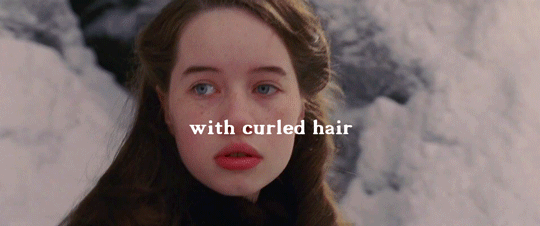
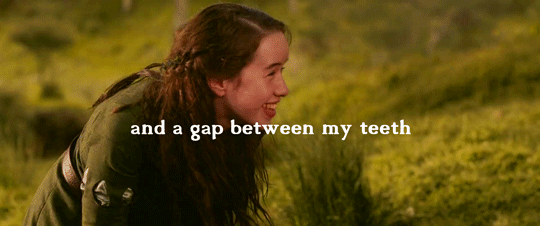

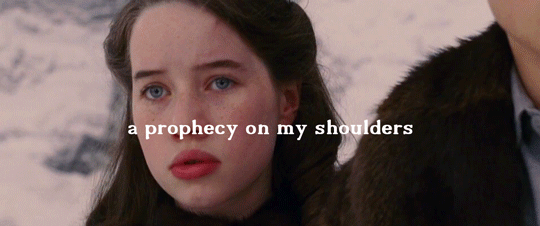

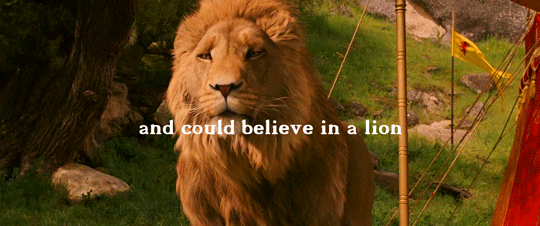

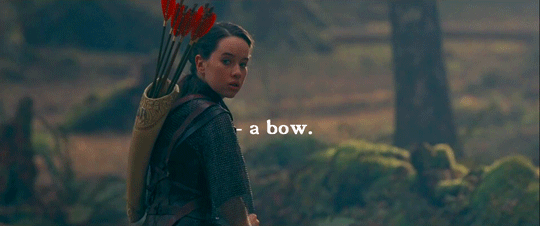
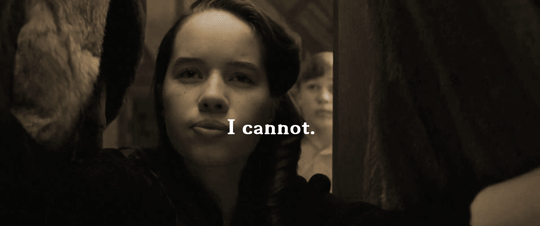
And yet here I am aching; yearning for a world in a wardrobe a train station a cave
Longing to go back home.
#susan pevensie#narnia#tconedit#narniaedit#the chronicles of narnia#the lion the witch and the wardrobe#prince caspian#the last battle#larissa makes things#queen susan the gentle#c: lipstick and nylons and invitations#my writing#poetry#*
7K notes
·
View notes
Photo
#damnit lucy why didn’t you keep me out of this crap






#high king peter the magnificent#peter pevensie#c: we didn't mean to leave#queen susan the gentle#susan pevensie#c: lipstick and nylons and invitations#king edmund the just#edmund pevensie#c: even a traitor may mend#queen lucy the valiant#lucy pevensie#c: if you were any braver you'd be a lioness#narnia#the chronicles of narnia
2K notes
·
View notes
Photo
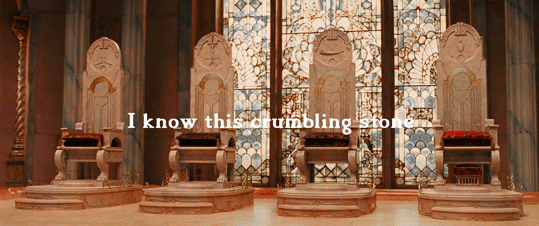
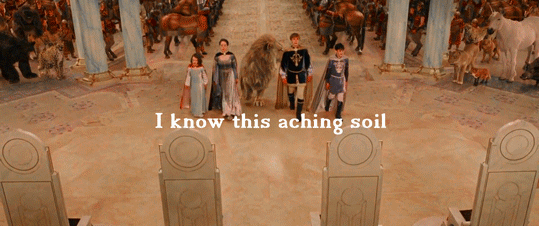

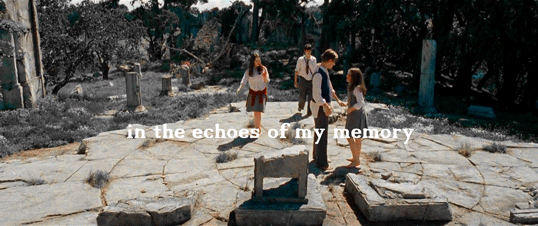
I know this cracking marble floor I’ve heard this sighing wind I knew this husk when it was vibrant and alive
#tconedit#tcon#narnia#susan pevensie#the chronicles of narnia#larissa makes things#me? making depressing susan poems again? more likely than you think!#queen susan the gentle#c: lipstick and nylons and invitations#the lion the witch and the wardrobe#prince caspian#narniaedit#*
2K notes
·
View notes
Text
Putting the Gentle Queen Back Into Her Own Narrative: A Suggestion in Ten Parts
I. I survived.
I survived Narnia, I survived the war, I survived being twelve and twenty-seven all at once. I survived. I didn’t mount a train I knew was never going to take me back home.
I said good-bye to my siblings, who, by then, hated me.
Or maybe didn’t hate me, maybe they were just annoyed with me, maybe – maybe I’d just lied to them too much.
Maybe I just told them that our memories weren’t real one too many times. Maybe I looked at Lucy and couldn’t see anything but a lion in the way she looked at me, maybe I looked at Edmund and couldn’t distinguish his eyes from the eyes I remember.
Maybe I looked at Peter.
At his trembling hands. Maybe I couldn’t bring myself to hug any of them.
Maybe I couldn’t bring myself to say good-bye.
II. Maybe – maybe, sometimes, I didn’t recognise my parents the way I should have. Maybe sometimes, I woke up in this damp, cold, sunless world, and couldn’t remember who I was. Maybe sometimes: I looked at my baby sister, and I looked at my baby brother and I saw; nothing. Maybe sometimes they fled into a world I couldn’t follow them into, maybe sometimes I couldn’t remember it at all.
Maybe sometimes I did, truly, forget.
III. Maybe: I remembered. Maybe I remembered a lion and I remembered the sun and I remembered the winter and I remembered the Talking Beasts and I remembered Tumnus and I remembered everything. Maybe sometimes I thought they were only dreams. Maybe sometimes I thought they work the way memories do; where, if you just tell yourself something long enough, your brain will create a memory for you. Did you notice? Tell a story often enough and it will change, and your memory will change to accommodate it. Or maybe that’s just me.
Maybe I just talked myself into it long enough. Maybe, when I was twelve, or twenty-seven, or maybe really just twelve years old, I looked into the mirror, at my curled hair, at the gap between my teeth; I looked at myself, and I saw: nothing. I couldn’t see the woman I thought – I knew – I’d grown into. I couldn’t see the way my hair curls naturally, couldn’t watch the way my eyes would glow. Maybe I didn’t see myself or even a girl, maybe I just saw a child; starving.
III. a) Maybe sometimes I had phantom pains in limbs that I suddenly could feel again. Maybe sometimes I imagined I’d lost them – and, conversely, imagined I never did.
IV. I survived.
I am the only one of us still standing, I am the only one of us who sits on this bench, who watches as they are all lowered into the ground in their best Sunday dress. Maybe I’m the only one who can see that none of them would have wanted to be buried like this. Maybe I look at my baby sister, the way she’s crammed into a dress with that collar she’d pull from her throat, groaning. And I see a lion cub curled up in the coffin, pressed against the satin, against the blood-red of it all. Maybe I wish there was a cherry tree to bury her under.
Maybe I look at my baby brother and miss the way his eyes would look, his suit is crinkled, his legs – his arms – all gangly things he’d not yet grown into. Maybe I wish there was a forest to carry him into, dryads in whose care to let him be buried.
Maybe I look at my eldest brother. Maybe I look at this boy I’d known all my life, with his blond hair and his hands; still. Still and unmoving, not a wrinkle in his suit, not a smile on his face. Maybe I look at this boy and I see; a beard, and I see; a tremor and I see; a smile and I see; a crown.
Maybe I just wanted to see them. Maybe I just wish that I had had a say in any of this, maybe I just wish that I could have picked the coffins, that I could have picked the clothes, that I could have picked the burial.
But I am twenty-one, see (or, perhaps, thirty-six, heaving). I am grieving.
V. There wasn’t a day I didn’t cry. There wasn’t a moment I didn’t hear the phantom memories of my siblings tumbling across the floor.
So Aunt Alberta did everything.
She wouldn’t let my cousin be buried with all the rest of them, see, and I wondered if she looked at her sister and felt the way I did when I looked at mine.
But the burial was the first time I didn’t cry since the telegram told me of bodies dispersed along train tracks. I put on lipstick, and nylons, and dresses, and petticoats, and a girdle and I smiled.
VI. My life is built on the back of survival. I went overseas because I couldn’t stand the dampness anymore. Perhaps that makes me a coward. Perhaps it makes me not a friend, perhaps it makes me unworthy in the lion’s eyes, perhaps it makes me a traitor the way my nine year old baby brother was when a woman fed him sweets and enchantments.
Maybe I betrayed them all by living; by surviving. Maybe, when I die, I won’t see them again. Maybe when I die I will – and the lion will stand there, and it will tell me to turn around, will tell me that there is no place in this country for Queens who grew up, for Queens who adapted, for Queens who survived.
VII. Perhaps then, finally, I can look at the lion and tell it what I think of its inaction in the face of genocide, its inaction in the face of its people starving and dying away. Maybe then I can tell it that a nine year old boy who misses his parents like the food he’s starving for, who hasn’t had sweets in a year didn’t deserve to be called a traitor because he was upset and hurt and a Witch spelled him.
VIII. Perhaps I will not say anything at all. Perhaps I will look at this lion and I will not recognise it, the way I go to the zoo and every time I see a lion I feel the urge to bow.
Perhaps my siblings will still hate me, will still be annoyed, will still be upset. Perhaps I’ve lied to them one too many times.
IX. I exist in this world. I have a life and I refuse to end it after fifteen years in another world, after nine years in this one. I’ve not lived yet.
X. I will live.
I just wish I’d hugged my siblings good-bye.
for @lucypcvensie bc it’s your birthday!
#tcon#fanfic#the problem of susan#susan pevensie#character study#peter pevensie#lucy pevensie#edmund pevensie#narnia#the chronicles of narnia#post the last battle#hi i. love her.#so much#queen susan the gentle#c: lipstick and nylons and invitations#high king peter the magnificent#c: we didn't mean to leave#king edmund the just#c: even a traitor may mend#queen lucy the valiant#c: if you were any braver you'd be a lioness#*#my work#doriansfam#emersonsfam
457 notes
·
View notes
Photo
susan is high femme and i adore her

Lesbian Susan Pevensie
Swing a little further, higher Underneath the big top trees Scrape my knees, whatever, ah I'mma gonna let them bleed
107 notes
·
View notes
Photo

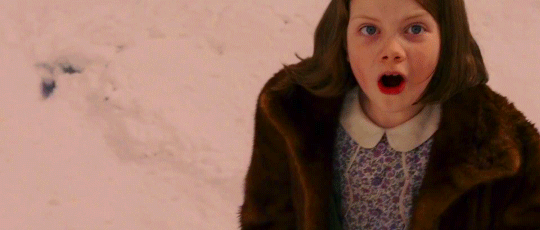
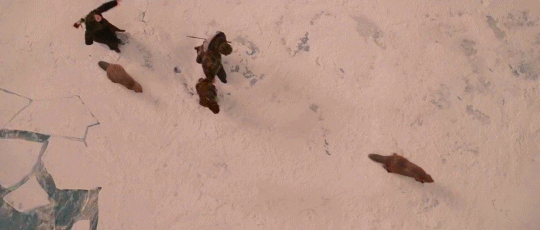
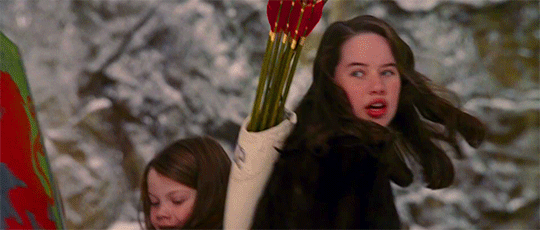
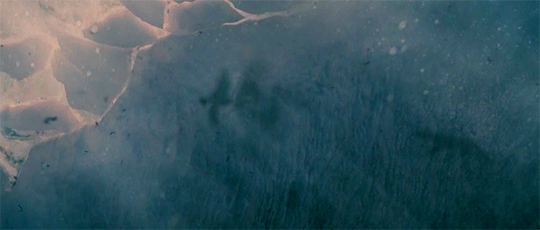
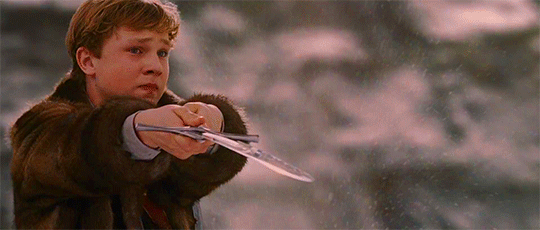
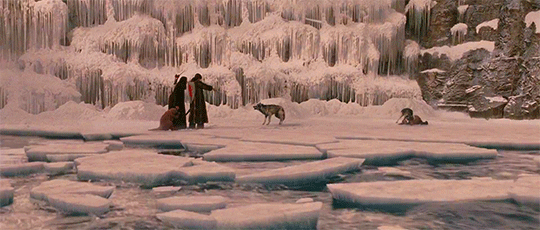
watch out! run.
there is a wolf with your scent in its nose a witch; your brother in her clutches
adam’s flesh and adam’s bone: the world thaws underneath your feet
now, come on come on.
take your childhood, boy take your english clothes, girls take your life, king that you will be queens that you will be
and run.
#tconedit#narnia#tcon#peter pevensie#susan pevensie#lucy pevensie#larissa makes things#the lion the witch and the wardrobe#high king peter the magnificent#c: we didn't mean to leave#queen susan the gentle#c: lipstick and nylons and invitations#queen lucy the valiant#c: if you were any braver you'd be a lioness#doriansfam#emersonsfam#*
426 notes
·
View notes
Photo
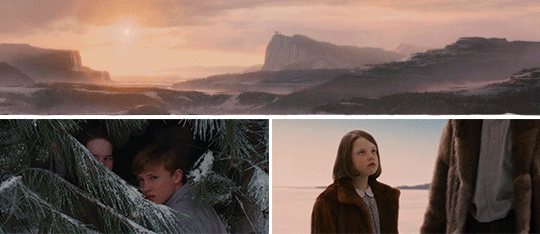









To the clear northern skies; High King Peter, the Magnificent with all the world atop his shoulders and all of Narnia’s storms all that she has seen in his eyes
tell me, my little one, have you seen the man who is the pillar of our world?
#tconedit#tcon#peter pevensie#narnia#prince caspian#the chronicles of narnia#the lion the witch and the wardrobe#larissa makes things#high king peter the magnificent#c: we didn't mean to leave#lucy pevensie#queen lucy the valiant#c: if you were any braver you'd be a lioness#susan pevensie#queen susan the gentle#c: lipstick and nylons and invitations#edmund pevensie#king edmund the just#c: even a traitor may mend#poetry#*
508 notes
·
View notes
Photo
okay i am happy that the slytherin misconceptions are cleared up, but I’d rearrange things a bit. like yeah, ed is smart and cunning but he’s also so loyal to these three he loves the most in the world and he’s the first to listen to lu when she says she sees aslan and he values loyalty above cunningness, his cunningness is to be loyal, his being a spy is to be loyal, to be good, to be just. so ed is hufflpuff, to me.
and lu, who finds friends at every turn but always has a use for her friendships, who pushes forward and always finds a way, who is appalled that susan could forget, who is ambitious and lovely and strives to do anything for her cause, she’s slytherin.
susan is the sort of ravenclaw people always think makes a ravenclaw, she’s mendable and rational and cool and values her rationality above everything else, above her heart. but that’s not what ravenclaw is about. ravenclaw is about knowledge and the thirst to know, to always know more and more and it doesn’t matter if it’s the assignment or not. peter who was high king and led them all, peter who didn’t forget narnia even when he was 22 in body and 37 in mind and when he hadn’t seen narnia in years, who held onto his knowledge for dear life, who went to be educated by the professor so he could know things in this world too. he’s ravenclaw.
so susan is gryffindor. why, you ask? gryffindor is about bravery and what is brave about allowing yourself to forget, about holding onto rationality above all else? susan was the only who could survive england, was the only one who did the tremendous work it took to grow into this country, this world, that would never value her the way narnia used to, she looked at her future and was brave enough to take it and to heed aslan’s advice. granted, she took it too far, but there is bravery in a 12 year old who is willing to face a monster to save her brother, there is bravery in a woman who buries all her family on the same day, there’s bravery in a woman who exchanges her weapons but doesn’t let them go. susan is gryffindor
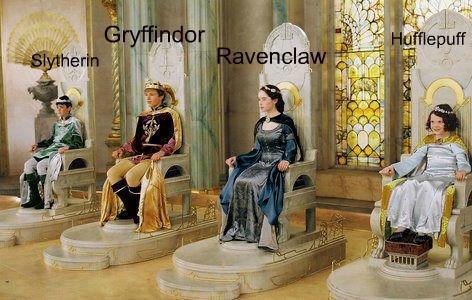
…It all makes sense now O.O
#the chronicles of narnia#peter diddn't beat that kid up bc he ran into him#he beat him up bc he didn't apologize and disrespected the knowledge peter has#there's nothing gryffindor about that#violence isn't bravery#bravery is being afraid and facing that fear#and susan did just that#peter pevensie#high king peter the magnificent#c: we didn't mean to leave#susan pevensie#queen susan the gentle#c: lipstick and nylons and invitations#edmund pevensie#king edmund the just#c: even a traitor may mend#lucy pevensie#queen lucy the valiant#c: if you were any braver you'd be a lioness#you can rearrange it in any way you want to btw#i could reason for every combination#almost like ppl aren't just made up of one trait#but i'm just really sick of assigning it to them based on colour and stereotypes
319K notes
·
View notes
Photo
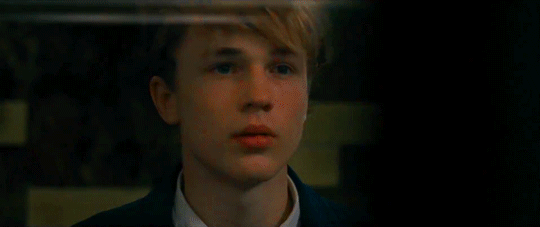

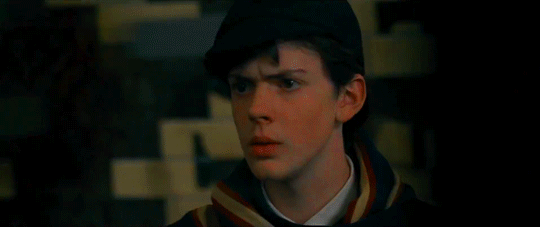

- What if, one day, as you’re waiting for your train, you look up and meet yourself? What would you do?
- I’d come home.
#tconedit#narnia#the chronicles of narnia#narniaedit#narnia edit#lucy pevensie#peter pevensie#susan pevensie#edmund pevensie#queen lucy the valiant#c: if you were any braver you'd be a lioness#king edmund the just#c: even a traitor may mend#queen susan the gentle#c: lipstick and nylons and invitations#high king peter the magnificent#c: we didn't mean to leave#larissa makes things#*
692 notes
·
View notes
Text
survive.
This is survival; blood dripping from your lips, your cheeks aching, your throat screaming, this is survival, my love. It’s ugly and heaving and screaming and dirt under your fingernails.
A run in your nylons.
Come now. Paint it.
Wipe away every trace of it, place teardrops on your lashes, clean your hands until the sink is stained with it all. Make yourself presentable.
This is survival.
Sometimes, the world stands still, choking you. Sometimes, it moves so fast that you can barely breathe, sometimes it just turns as it always has. Despite everything. Despite witches and lions and wardrobes and tables made of crumbling stone, and despite train stations and brothers and a sister; spitting light. Despite warm spring mornings and worlds beyond this; stuck still and heaving amongst falling stars and splintering heavens; its shards all stuck in your hands, see?
Can you feel the ache of your hands, the way they’re cut open and bleeding, seeping with all this red, all this iron like the smell that clings to – clung to, she’s dead, my love, she’s died and will never smell like anything ever again – Lucy, and her copper hair, the dryad and the dwarf swaying all about her? Does it hurt, my love? Does it ache? My Queen, how deep are your wounds? can you use your hands again, bleeding and seeping and clawing your way out of this survival burning in your cheeks? The world keeps on turning around you, as it always has, despite it all.
It pays no mind to this iron dripping from you, pooling at your seams. It pays no mind to these voices all pulling at you, peering through your every crack, fumbling at all your scars, peeling all this make up from you until you’re blotched red and rubbed raw; and still.
Like this, they cast you in stone.
Pretty, crying, heaving thing, you hollow Queen, they drape you in flowers and cloth smooth as water, pour water all over you until all the English has seeped from your hair; until it’s left curling and standing on edge.
*
Why are you crying?
Why are you crying?
Why are you screaming?
Why do you claw at us?
What are you doing?
Stand still!
My Queen, my love, light of my life, you gentle thing, why don’t you stay where you are and stand still?
Let us dress you, and pose you, and drape you all over this crumbling, dying land. We will make you Gentle again, ever smiling just for us. Come on, my love.
Be a friend of Narnia.
Don’t you want to see your siblings again, don’t you yearn for the way your brother would hug you, for his trembling hands?
Don’t you want to remember them as they were, not pale and cold and unmoving, buried in this English soil, in this English way – is this what they wanted?
Is this what you want?
Susan.
Susan.
Susan!
Do you want this?
Do you want this world and this England, do you want nylons and lipstick and invitations and petticoats?
Susan, do you want these boys?
These boys with their hands, their mouths all over you, your skin blotched red and black, bruised blue and purple, is this what befits a Queen?
*
This is survival. Drag yourself through it.
Raise your head and your world and all your words at the world’s mirrors, at all its eyes on you, at all those hands reaching for you.
You’re a Queen. Use it. Survive your worlds. Survive them all.
And then; live.
Curl your hair and twirl your skirts and dance into the new decade, dance into the new millennium.
Susan, my love, you will stand at the edge of this world and watch it sprint towards all this newness. Susan, my love, you will be married, and she will be lovely, with her arms around you, her lips a mark of red smeared on your cheeks.
Your children; drunk on euphoria as this last millennium ends – they raise their glasses: to the new year, and to you, my love.
To Susan Pevensie, mother and wife, wonderful woman, survivor.
They’ve never known the Queen nestled within you. They’ve never known worlds beyond this one. And you, amidst it all; glowing still.
Isn’t that lovely?
You’ve survived.
#tcon#tconedit#narnia#susan pevensie#the problem of susan#queen susan the gentle#emersonsfam#doriansfam#larissa makes things#my work#c: lipstick and nylons and invitations#hi1 have another piece on grief and survival! im on a roll!#the chronicles of narnia#*
135 notes
·
View notes
Text
Yeah uh. Jill met Susan. All the time, multiple times a year. Actually whenever Eustace and she would meet with the Friends of Narnia. Which was a regular occurrence. Much like how the Inklings would meet IRL in Lewis’s own life. Susan was very Bathsheba Everdene in personality—someone who thinks society image is all that matters and damn the feelings of people close to her (someone who puts up a front and constantly conceals her true feelings and then plays with the sentiments of others, often cruelly but seemingly ignorant of doing so). Susan is also a Lydia Bennet personality; someone who plays grown-up with great flair, but is considered a “flirt” and a “gossip” because of how heavily she fancies herself “adult”. Yet she’s also a Young C. S. Lewis in her “common sense”, logic, practicality, and hatred of Aslan and Narnia and therefore rejection of her beliefs in that world—because she feels it rejected her. Lewis wasn’t being sexist when he criticized through Jill Pole that Susan’s only interests were in “lipsticks, nylons, and invitations” or in Polly Plummer that “she wasted all her school time wanting to be the age she is now, and she’ll waste all the rest of her life trying to stay that age.” These aren’t words from people who don’t know Susan. These are words from people who DO KNOW HER, and knew her BEFORE she changed. Which means that she AT ONE TIME attended the Friends of Narnia meetings, but fell away or came to resent them and make her resentments known.
This isn’t a smack at sexuality, or Lewis hating on women, or any of that crap. This is Lewis using HIS OWN SELF as an example—he literally said that of them all, Susan is “most like himself”. That her sort of spiritual walk back to reclaiming her original self, her spiritual self, would likely resemble his own and be a much more adult book than children would care to read. Because Susan coming back to Narnia would be far more theological than anything in the series.
You misinterpret the problem of Susan??? You assume lipsticks and nylons has something do with Lewis condemning female sexuality when in fact a. nylons were new after the war and linked with seeming grown up, and the real problem is that in attempting to appear grown up Susan was ignoring even the Good things of childhood, and b. that quote actually comes from Jill who never met Susan and though I love her has a “not like other girls” streak and so we shouldn’t take exactly what she says at face value??? Oh oh JAIL for foolish readers! JAIL for One Thousand Years!!
1K notes
·
View notes
Photo
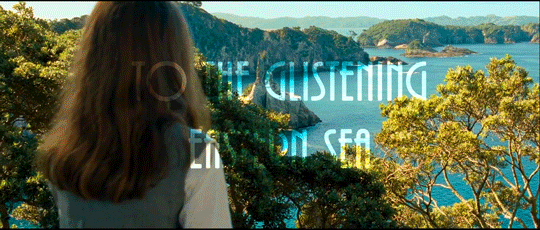
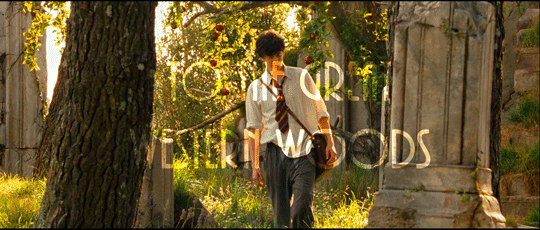
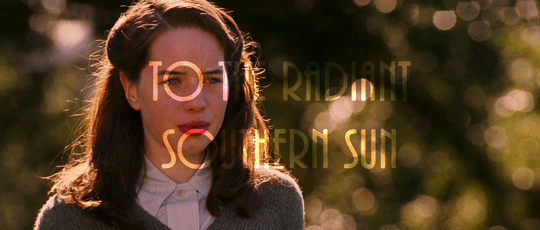
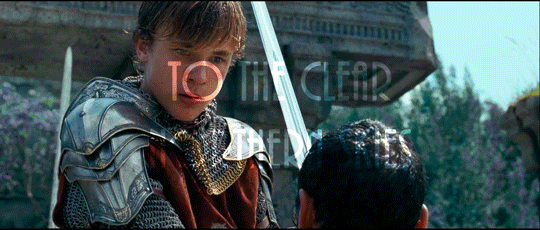
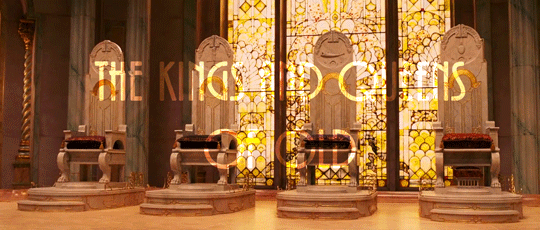
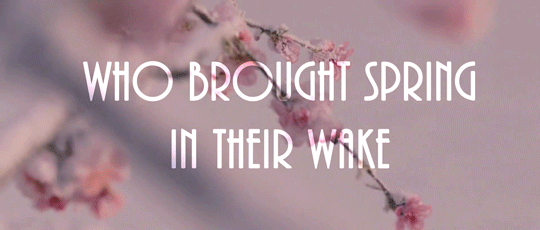
- What’s your story about, my love? - Two kings, and two queens, with the world’s weight on their shoulders and spring at their heels. And they were valiant, just, gentle and magnificent. One had the sun in her smile, another the sea in her eyes. One had the skies in his touch, the last of them had the woods cradled in his hands. - Tell me, then; how does their story end? - I don’t know. - Why not, my darling? - It hasn’t ended yet.
#narnia#narniaedit#narnia edit#the chronicles of narnia#the lion the witch and the wardrobe#susan pevensie#lucy pevensie#edmund pevensie#peter pevensie#the kings and queens of old#queen lucy the valiant#c: if you were any braver you'd be a lioness#king edmund the just#c: even a traitor may mend#queen susan the gentle#c: lipstick and nylons and invitations#high king peter the magnificent#c: we didn't mean to leave#larissa makes things#*
502 notes
·
View notes





